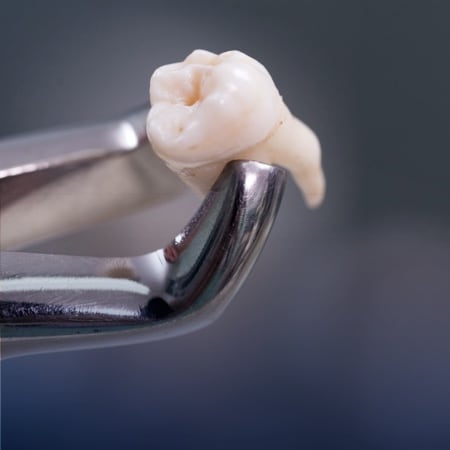Are You A Good Candidate for Dental Implants?
A good candidate for a dental implant can benefit from improving their smile, restoring their bite, preserving their facial shape, and preventing bone loss.
However, not every patient is a good candidate for dental implants.
One of the most significant concerns before any oral surgery is the health of your gums. Your gums and jaw need to be healthy enough to support a dental implant. Periodontal disease can impact your oral health and increase the risk of implant failure.
What Is A Dental Implant?
A dental implant is an artificial tooth. It replaces the entire tooth, from crown to root. The artificial root, typically titanium, is implanted into the jawbone. The placement acts as an anchor, creating a stable and supportive hold for the replacement tooth.
Dental implants can last a lifetime. However, there can be complications, such as implant failure. Some significant risk factors of implant failure are poor dental maintenance, bone loss, and gum disease.
Understanding Periodontal Disease
Periodontal disease, also known as gum disease, is a gum infection caused by bacteria buildup. Healthy gums attach to our teeth below the gumline, securely holding our teeth in place. Gum disease breaks down the attachment, known as attachment loss, eventually affecting the gum tissue and bone.
The buildup of bacteria, or dental plaque, forms a sticky substance on teeth. Plaque feeds on sugars and food debris left behind after eating. Brushing and flossy daily can remove most plaque, reducing your risk of cavities and gum disease.
Gum disease develops slowly and can almost always be prevented and reversed if diagnosed in an early stage.
The Stages of Gum Disease
There are 3 stages of periodontal disease: gingivitis, periodontitis, and advanced periodontitis.
During the earliest stage, gingivitis, your gums experience inflammation. However, gingivitis is the easiest stage to treat. If you have gingivitis, visit your dentist for treatment. Your dentist can also offer tips on improving your dental hygiene routine to reduce the risk of recurrence.
After gingivitis is managed, you can be a good candidate for a dental implant. But, when gingivitis is untreated, gum disease can develop into later stages, potentially causing permanent damage to your teeth and jaw.
Periodontitis, the second stage, can be treated but typically require more extensive methods to control the infection. As the disease progresses into advanced periodontitis, the risks of permanent damage increase.
The later stages of gum disease cannot be treated solely at home. Instead, your dentist may treat your condition with deep cleaning (below the gumline), medication, or corrective surgery.
Bone loss is a significant concern for the later stages of periodontitis. Untreated gum disease can lead to jawbone loss and include symptoms such as:
- Discomfort chewing
- Difficulty speaking
- Lips sinking inward
- Weakened facial muscles
- Shifting or loosening teeth
- Wrinkles forming around the mouth
- Headaches, facial pain, or jaw pain
- Changes to bite and facial structure
Additionally, bone loss makes it challenging to attach dental implants. A dental bone graft may be an option to restore bone structure and provide better support for a dental implant. Another option used by CVOS Oral Surgery is for your surgeon to take advantage of new implant technologies that are able to achieve desired implant stability and strength without the need to graft new bone.

How Does Bone Loss Affect Your Teeth?
Regular dentist visits and screenings are crucial to identifying and treating bone loss linked to gum disease. Although bone loss cannot be reversed, it can be stopped, and dental procedures are available to promote bone growth.
Protect Your Bite with Dental Hygiene
If your smile or oral health would improve with a dental implant, you can increase the chance of a successful implant. Healthy outcomes for your oral surgery begin with healthy dental hygiene.
7 out of 10 Canadians will experience gum disease, yet the condition is preventable. Regular visits to your dentist and oral hygiene habits can reduce your risk of developing periodontal disease.
Protect your gum health and prevent infection with a dental hygiene routine:
- Brushing twice daily
- Flossing (at least once daily)
- Using therapeutic mouthwash
- Regular cleanings with your dentist
- Quit smoking
Reduce your risks of periodontal disease and bone loss by consulting with your dentist about your oral habits.
Contact Us About Your Oral Health
We’re here to support your oral health. Please get in touch with our knowledgeable and friendly CVOS Oral Surgery team if you have questions about:
- Dental implants
- Bone loss or jaw problems
- Gingivitis or periodontal disease
- Recommended oral hygiene products
Book an appointment if you have concerns about your teeth, gums, or jaw.









